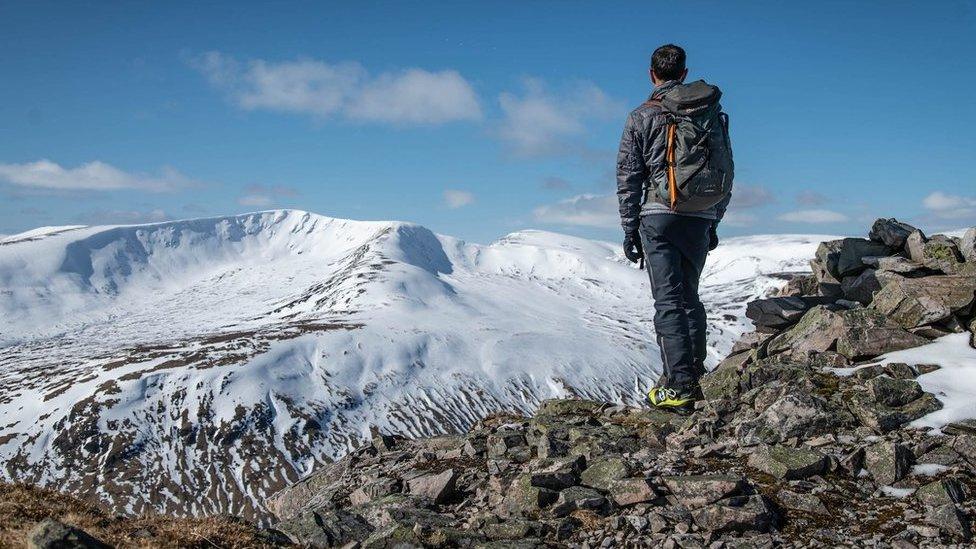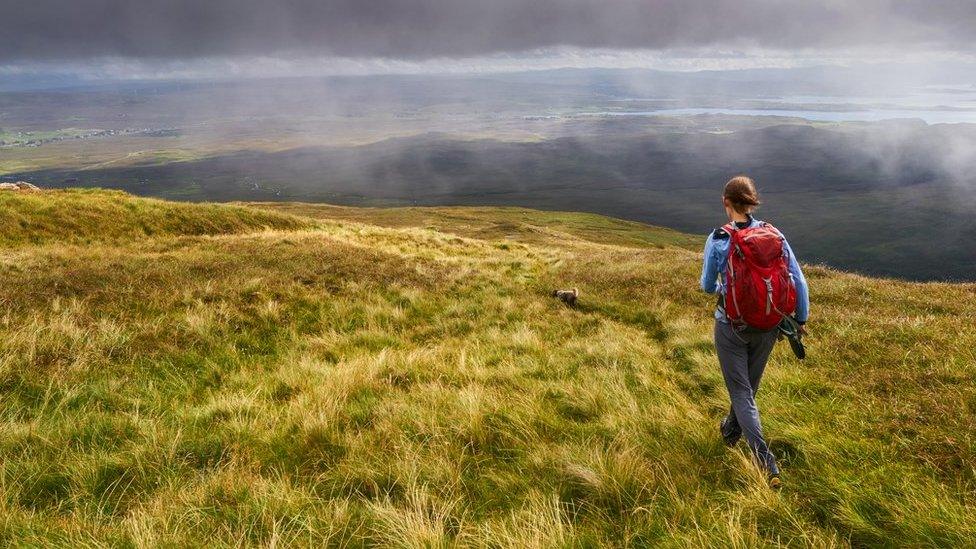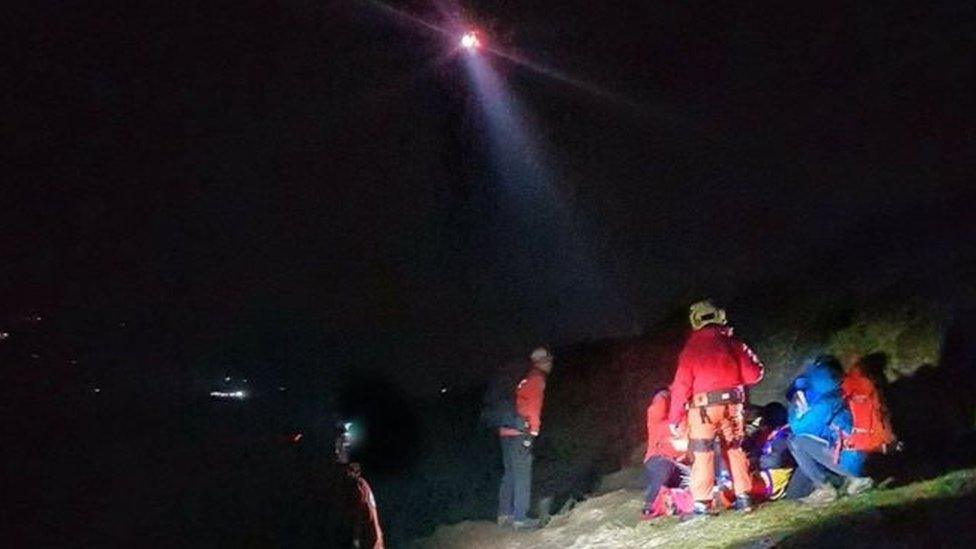Coronavirus: Patience plea over return to Scotland's hills
- Published

A day in the Cairngorms before the lockdown in a picture taken by the Scottish Avalanche Information Service
How will Scotland's hills and mountains emerge from the lockdown? Mountain rescuers and outdoors groups have appealed for patience from those itching to get back to the great outdoors.
People have been discouraged from visiting the Scottish hills since 21 March.
It has led to the longest period in almost 20 years without a mountain rescue incident.
Hillwalkers, climbers and snowsports enthusiasts have been praised for resisting the temptation to head to the hills and staying at home instead.
The lure of Scotland's upland areas has been strong during the lockdown.
Winterhighland, which provides information on snow conditions, described the spring as "one of the best in years", with mountains having deep coverings of snow coupled with weeks of fine weather.
This week, the Scottish government set out its phased approach to leaving the lockdown. The first phase starting next week does allow for some outdoor pursuits, but it encourages people to stay local.
For now, the hills are only accessible to those with them pretty much at their back door.
'Bare minimum'
Andy Nelson, Glencoe Mountain Rescue Team, external leader, has welcomed the government's phased approach to easing restrictions.
"We know a spike in the numbers of people in the hills is coming, and we want to see that spike delayed for as long as possible," he said.
Mr Nelson has strong opinions about people flocking back before it has been deemed safe to do so.
In an open letter posted to the team's Facebook page this month, he gave a stark warning that his first priority was the safety of his team and his second priority was the plight of any "stricken mountaineers".
The "bare minimum" number of team members would be sent to help seriously injured casualties, while "walking wounded" would be asked to get themselves to safety.
Mr Nelson said this warning was contradictory to everything the team believed in, but he had to look after its members so that they in turn were fit enough to help casualties.
He told BBC Scotland News: "The team members cannot be put at risk of potentially getting coronavirus from a casualty, or a member of the team giving it to them."

Rescue organisations warn access to the hills is "not back to normal"
Worryingly, Mr Nelson said lockdown restrictions were being flouted by some.
"We've seen cars parked in lay-bys near walking routes. The cars have number plates we don't recognise, so people have travelled in from outside the local area," he said, adding: "Police are aware and have been leaving notes on the car windscreens."
'Take extra care'
Scottish Mountain Rescue (SMR), which represents 24 volunteer teams, said access to the hills was "not back to normal", and only possible for those who could safely comply with the government's travel guidelines.
It said while rescue teams remained on stand-by for accidents, their responses would be slower and with fewer team members.
SMR said the majority of outdoor pursuits enthusiasts do adequately equip themselves and carefully plan their days. But it added it was concerned for people not so well prepared and urged them to go to Mountaineering Scotland's website, external for advice on how to stay safe.
Ramblers Scotland said the Scottish government's guidance was clear "that, for now, walkers must stay local".
Director Brendan Paddy said: "Ramblers Scotland is also encouraging walkers to plan ahead, as local hotspots may be busy or facilities closed, and to take extra care to be responsible, especially on farmland.
"As the lockdown gradually eases in Scotland, we urge all walkers to take things easier than normal, always keeping our vital emergency services and rescue teams in mind."
The Cairngorms National Park Authority said even those lucky enough to live close to the hills might find some restrictions.
Head of visitor services Pete Crane said: "Please plan ahead - many public toilets aren't open and some countryside car parks are still closed so 'go where you know' and follow the Scottish Outdoor Access Code at all times."
He added: "We are working hard with partners and land managers around the Cairngorms National Park to get ready for when restrictions are lifted and we can all enjoy the beauty of the park once again."

RISK AT WORK: How exposed is your job?
THE R NUMBER: What it means and why it matters
LOOK-UP TOOL: How many cases in your area?
WHAT DOES IT DO TO THE BODY? Doctors on the front line explain

- Published18 April 2020
